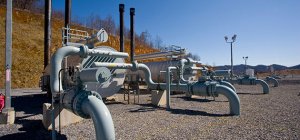Interstate Gas Pipelines in NJ – Public Use or Private Benefit?
Photo credit. http://www.spectraenergy.com/Natural-Gas-Oil-101/
New Jersey is the most densely populated State in the Union. It may soon have the most underground gas transmission lines. The latest in a series of new pipelines is being proposed in New Jersey is by PennEast, a subsidiary of Spectra Energy. An interactive map of the proposed route can be found here. Approval status of the pending application may be found here.
There has been plenty of local opposition to the project in New Jersey:
Trentonian article 6-19-16
Stop the Penn East Pipeline Facebook
NJ.Com Article 1-20-16 detailing efforts of Homeowners Against Land Takings (HALT).
HALT has published six reasons why the project is not a good idea:
- 950′ incineration zone.
- 125’+ swath of devastation to forests, streams, and agriculture.
- Pipelines leak.
- Extreme amount of blasting – damaging wells, houses, and endangered species.
- Blasting can poison the water with arsenic.
- Preserved farm land and open space being violated.
Clearly local opposition is focused. Yet, unlike most decisions affecting local landowners, the decision is being made in Washington, DC by the Federal Energy Regulatory Commission (FERC), not a local land use agency. And assuming that the FERC issues a certificate of public convenience and necessity, Penn East will be a private entity armed with the most awesome governmental power of eminent domain. That is, the power to take private property without the owners’ consent. The power is subject only to the requirement that the taking be for a public use and that the landowner be paid just compensation.
In the end, this legislative power is subject to judicial review, and Penn East can proceed in either the Superior Court of New Jersey, or the United States District Court for the District of New Jersey. Both tribunals have procedural requirements for the commencement of a condemnation action, which have traditionally been construed by the New Jersey Courts strictly. In either tribunal, the initial question will be whether the takings are for a public use.
If the citizens of New Jersey demand for natural gas is already completely satisfied by existing capacity, it does not appear as if the takings would be for a public use benefiting the citizens of New Jersey. One article notes that the pipeline is for surplus capacity only:
“The PennEast pipeline alone would bring an additional one billion cubic feet per day of gas to Southeast Pennsylvania and New Jersey, and result in a 53% surplus beyond current demand in New Jersey, according to a study by the Labryinth Consulting Group. The Labryinth Study also concluded that “existing interstate pipelines supply all of New Jersey’s natural gas demands,” and that the true intent of the project is to deliver gas to other downstream markets.”
Public use or private benefit?
FERC won’t necessarily be asking that question during the application process, but the judiciary should certainly be asked the question when Penn East comes knocking on their door later this year.








